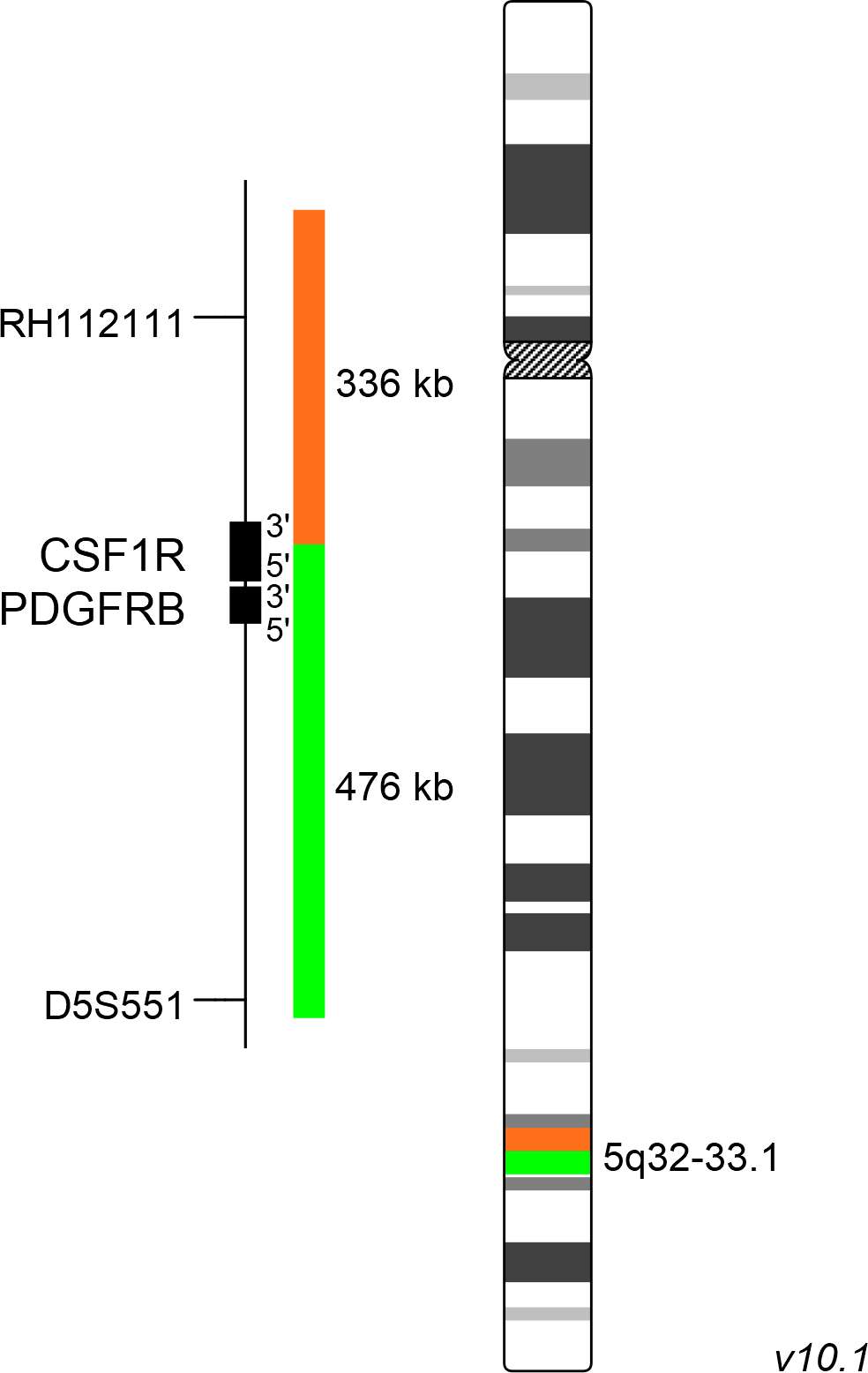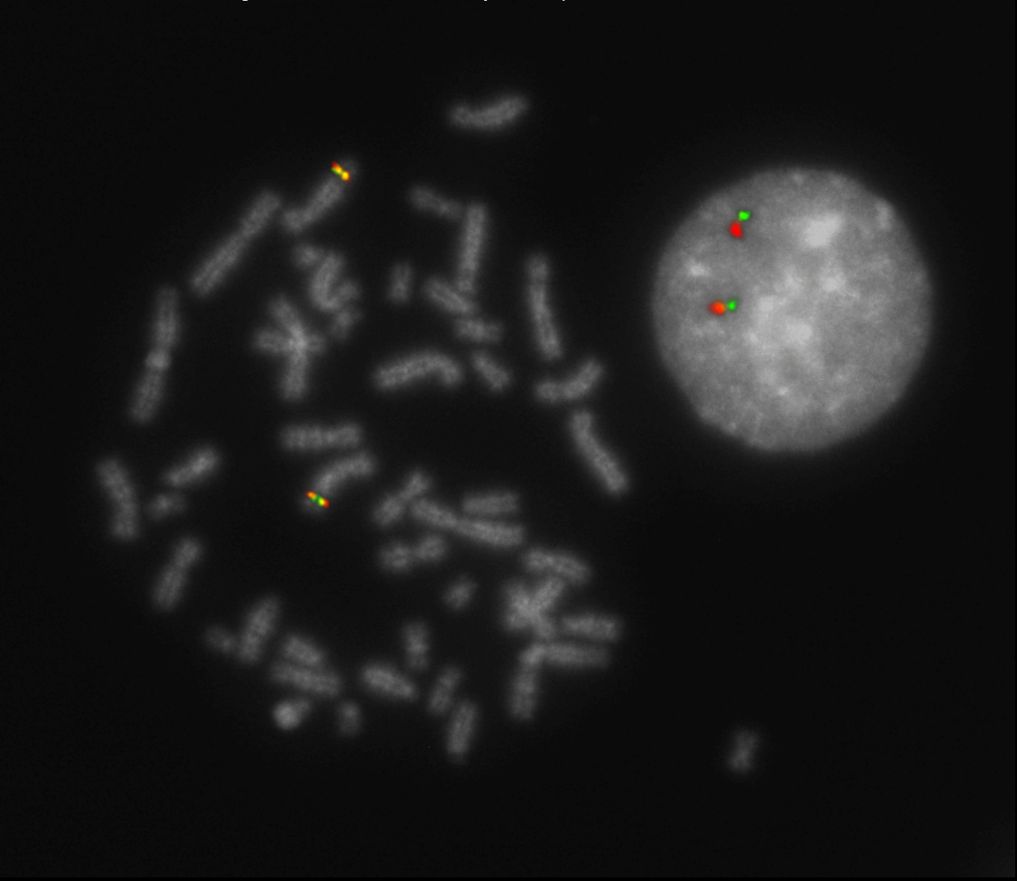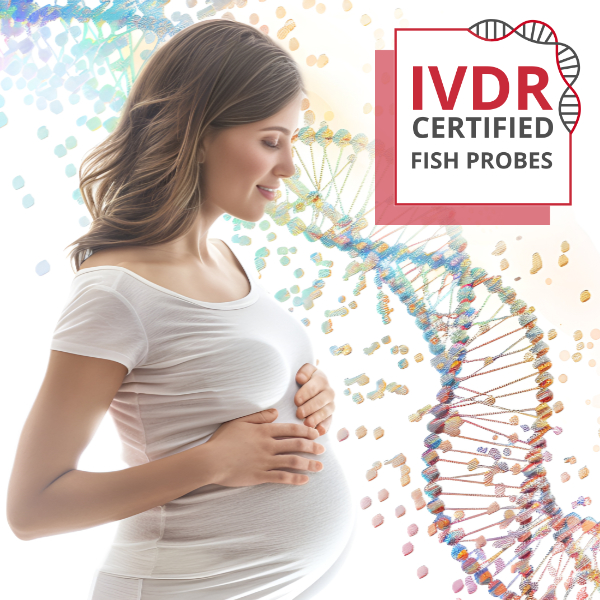
XL CSF1R BA
Break Apart Probe
- Order Number
- D-5152-100-OG
- Package Size
- 100 µl (10 Tests)
- Chromosome
- 055
- Regulatory Status
- IVDD
IVDR Certification
MetaSystems Probes has already certified a wide range of FISH probes, according to IVDR.
This product remains IVDD-certified until further notice.
Discover all IVDR-certified products
XL CSF1R BA consists of an orange-labeled probe hybridizing proximal to the CSF1R gene region at 5q32 extending into the gene up to intron 5 and a green-labeled probe hybridizing distal to the CSF1R gene region at 5q32-33.1 extending into the gene up to intron 5 (GRCh37/hg19).
Probe maps for selected products have been updated. These updates ensure a consistent presentation of all gaps larger than 10 kb including adjustments to markers, genes, and related elements. This update does not affect the device characteristics or product composition. Please refer to the list to find out which products now include updated probe maps.
Probe map details are based on UCSC Genome Browser GRCh37/hg19, with map components not to scale.
In the 2016 World Health Organization classification of myeloid neoplasms and acute leukemia, the B-lymphoblastic leukemia/lymphoma subtype 'BCR-ABL1-like acute lymphoblastic leukemia' (BCR-ABL1-like ALL), also called 'Philadelphia chromosome (Ph)-like ALL', was recognized as a provisional entity. BCR-ABL1-like ALL is a high-risk subset of B-cell precursor ALL disorders characterized by a highly similar gene expression profile compared to Ph+ ALL in the absence of BCR-ABL1 fusions. Altered genes involved in the development and maintenance of Ph-like ALL are ABL1, ABL2, BLNK, CRLF2, CSF1R, DGKH, EPOR, FGFR1, IL-2RB, JAK2, LYN, NTRK3, PDGFRA, PDGFRB, PTK2B and TYK2.
CSF1R (colony stimulating factor 1 receptor) is a membrane-integrated tyrosine kinase receptor expressed by monocytes, macrophages, and other cells of the myeloid lineage. Binding of its ligands interleukin 34 or colony stimulating factor 1, respectively, leads to receptor homodimerization and auto-phosphorylation of the intracellular tyrosine kinase domains, subsequent signaling, and gene transcription. CSF1R-mediated signaling plays an important role in the differentiation and survival of monocytes and macrophages. In addition, CSF1R is a key factor in the tumorpermissive and immunosuppressive behavior of 'tumor associated macrophages' by promoting tumor progression and survival via suppressing effector T-cell functions. Known translocation partner genes involved in CSF1R rearrangements, identified in Ph-like cases, are SSBP2, MEF2D and TBL1XR1. The most intensively characterized CSF1R fusion is SSBP2-CSF1R resulting from the translocation t(5;5)(q14;q32). The ABL1 inhibitors Imatinib and Dasatinib are known to have anti-survival and proapoptotic capacities on cells expressing the SSBP2-CSF1R fusion.
Clinical Applications
- Acute Lymphoblastic Leukemia (ALL)

Normal Cell:
Two green-orange colocalization/fusion signals (2GO).

Aberrant Cell (typical results):
One green-orange colocalization/fusion signal (1GO), one separate green (1G) and orange (1O) signal each resulting from a chromosome break in the relevant locus.
- Cannarile et al (2017) J Immunother Cancer 5:doi:10.1186/s40425-017-0257-y
- Roberts et al (2017) Blood Adv 1:1657- 1671
- Tasian et al (2017) Blood 130:2064-2072
Certificate of Analysis (CoA)
or go to CoA Database




